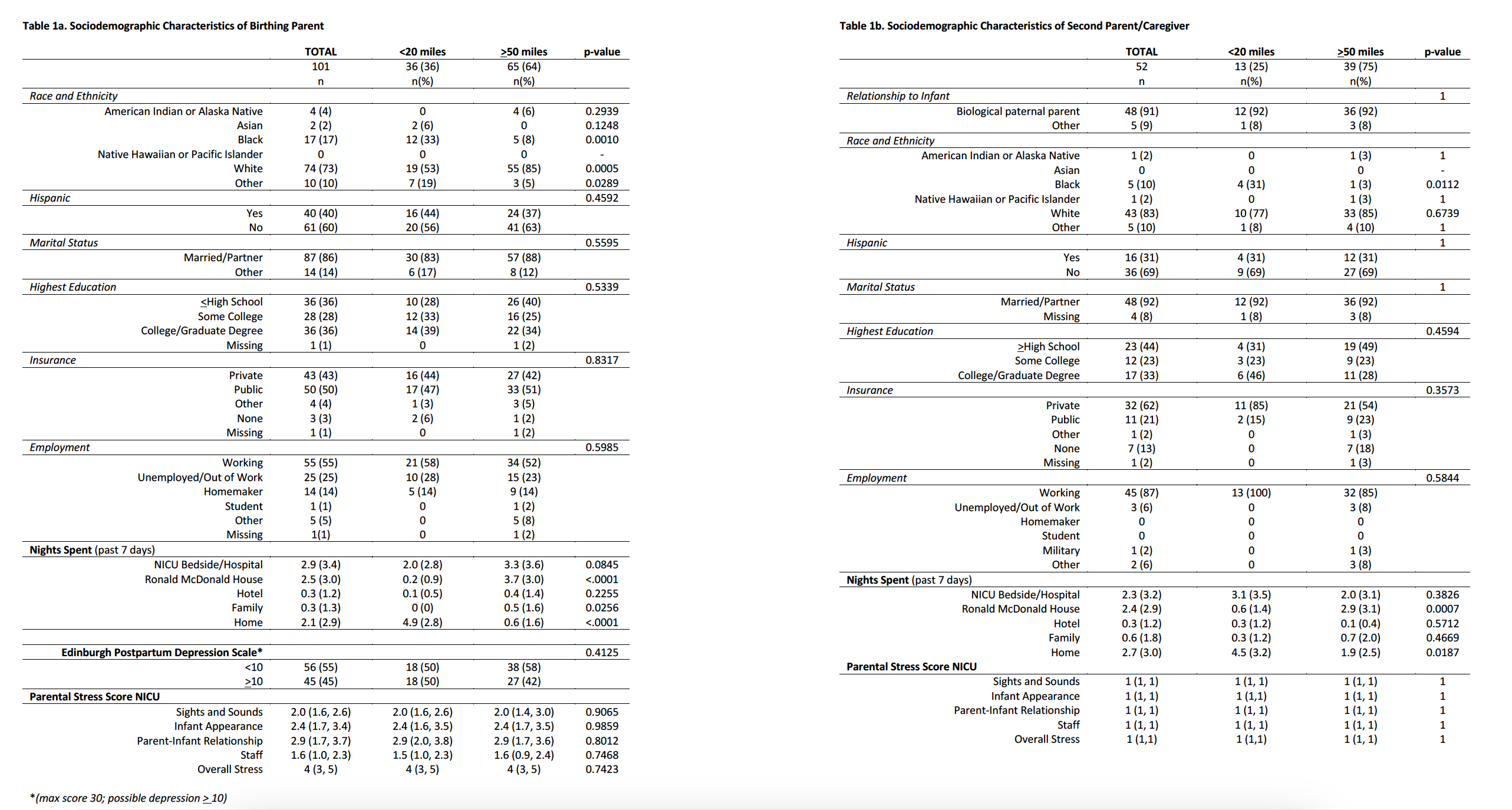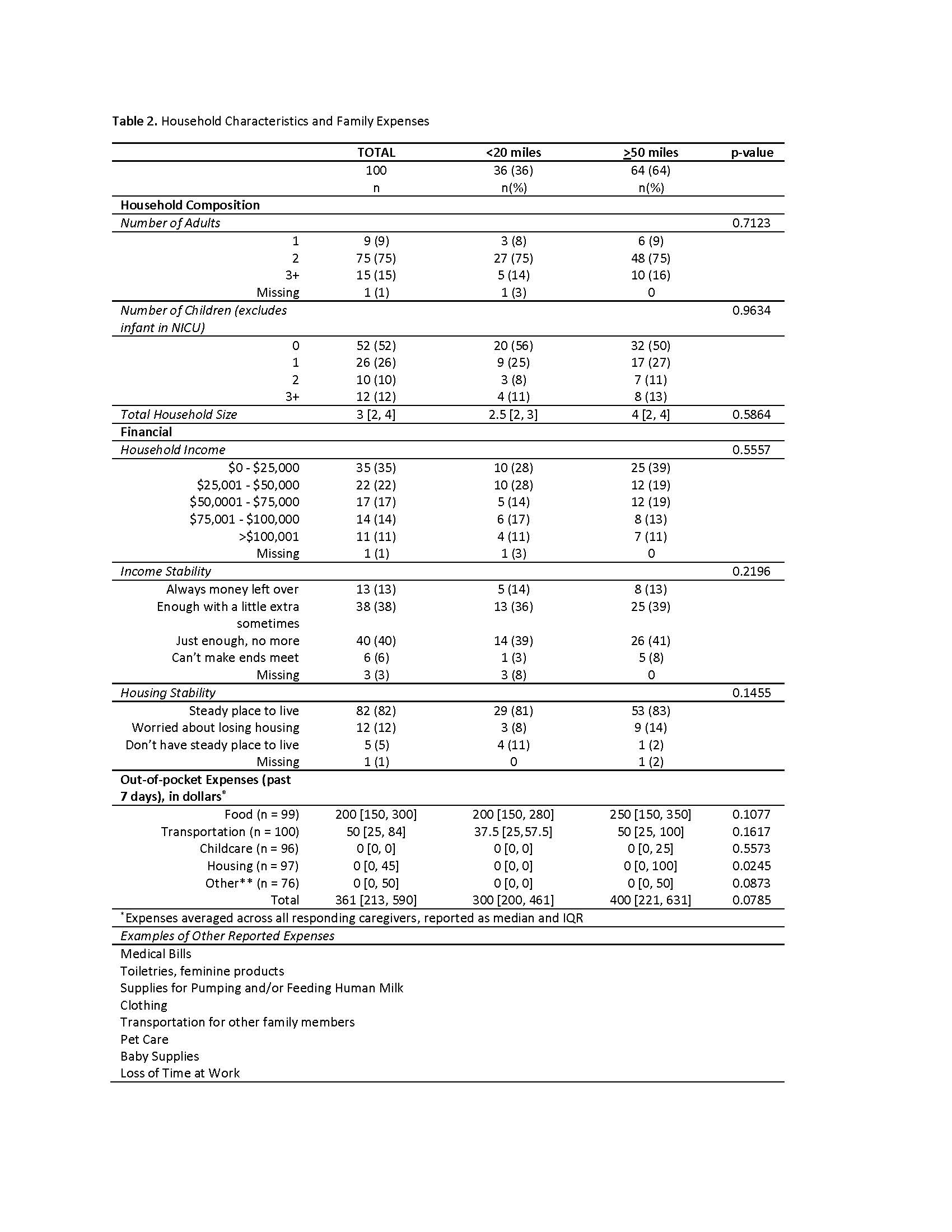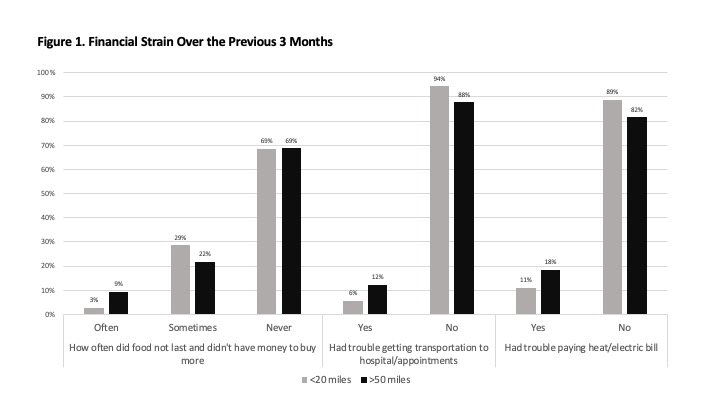Neonatal-Perinatal Health Care Delivery: Epidemiology/Health Services Research
Neonatal-Perinatal Health Care Delivery 2: Epi/HSR Equity
634 - Financial Strain on Families During Prolonged Neonatal Intensive Care Unit Admission
Publication Number: 634.141

Stephanie L. Bourque, MD, MSCS (she/her/hers)
Assistant Professor of Pediatrics
University of Colorado School of Medicine
Denver, Colorado, United States
Presenting Author(s)
Background:
Prolonged admission to the neonatal intensive care unit (NICU) creates unique challenges, especially for families displaced from home. Financial barriers may result in decreased time at the bedside and opportunities for engagement with their infant. Data evaluating the financial impact of a prolonged NICU admission on families are lacking.
Objective: Evaluate financial strain and out of pocket expenses associated with a prolonged birth hospitalization in the NICU by distance from home to hospital.
Design/Methods:
Primary caregivers in a regional level IV children’s hospital NICU were surveyed (2021-2022). Eligibility included prolonged birth hospitalization (> 2 weeks). Infants in custody of child protective services and those with life limiting diagnoses were excluded. Distance from primary residence to hospital was categorized as local (<20 miles) or distance (> 50 miles). Data was analyzed by respondent including birthing parent and other primary caregiver; financial data was analyzed at the family level. Chi-square analysis was used to compare sociodemographic characteristics, finanicial strain, and out of pocket expenses by distance.
Results:
Of the 152 respondents, 100 identified as a birthing parent and 52 as a parent/primary caregiver. Among birthing parents, 36% resided locally and 64% resided > 50 miles away. Caregiver demographics by respondent type are presented in Table 1. More than half of families reported an annual household income of <$50,000 with 39% (n=25) of distance families earning <$25,000, compared to 28% (n=10) of local families. Self-reported out-of-pocket expenses over the previous 7 days averaged $361 per family [IQR $200, $461, p=0.07] with the highest reported expenses being food and transportation (Table 2). There was no difference markers of financial strain including food insecurity (p=0.48), transportation (p=0.49) or utility (p=0.32) challnenges by distance from home to hospital (Figure 1).
Conclusion(s):
Among families in the NICU, many NICU families experience financial strain and significant out of pocket expenses, irrespective of distance from home to hospital. Other factors, including postpartum medical needs, employment obligations, and childcare responsibilities may be more pronounced with geographic separation, exacerbating existing financial challenges. Additional evaluation of impact of financial strain to families during birth hospitalization may help direct in-hospital and community level financial support interventions.


